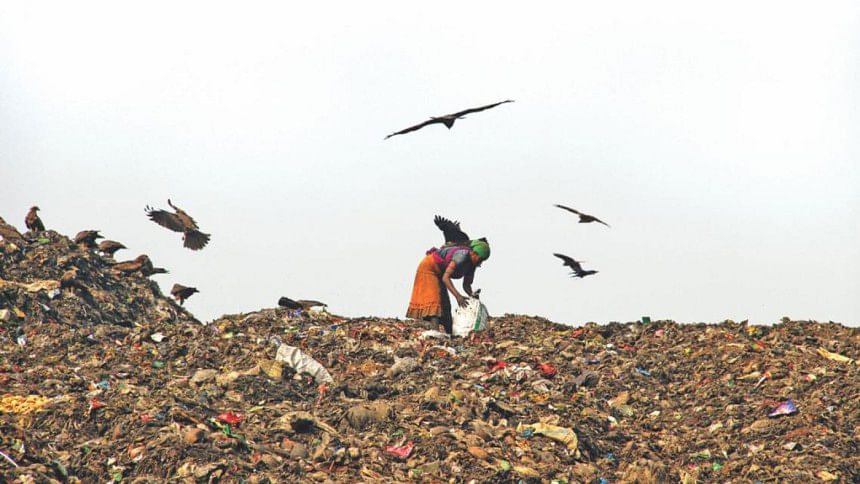A clean city with more job opportunities?

According to a study by Global Alliance for Incinerator Alternatives (GAIA), a worldwide alliance working for a global shift towards environmental justice, over 6,000 new jobs can be created in Dhaka if 80 percent of recyclable and organic material in its waste stream can be recovered. The study has found that by investing in zero-waste programmes, cities can not only reduce pollution and improve community health, but can also create a good number of green jobs. Jobs can be created through various waste management strategies such as repair and reuse, recycling, composting, incineration and landfill. While reusing can create over 200 times as many jobs as landfills and incinerators, recycling can create around 70 times the number of jobs, and re-manufacturing can create almost 30 times as many jobs as landfills and incinerators. The study findings are, indeed, very encouraging.
Waste management is one of the most pressing issues that Dhaka has been facing for decades as our city authorities could not yet develop an environment-friendly, sustainable waste management system. The city has been using two landfills (both of them have almost reached their full capacity) under two city corporations to dump all kinds of waste, including medical waste and e-waste. Moreover, there is hardly any formal mechanism to recycle and reuse the waste materials dumped there. Reportedly, around 6,250 tonnes of garbage are produced in both city corporations every day, a large amount of which goes into open drains, canals and water bodies because of the incapacity of the corporations to collect them.
This newspaper has published several research-based reports on the waste management problems of Dhaka and many other divisional cities to draw the attention of the authorities to establish an efficient waste management strategy. Unfortunately, we are yet to see any visible change in the system. What is most unfortunate is that we still do not have a waste management policy without which an organised waste management system cannot be established.
However, the GAIA study findings have given us hope by showing us how we can save our environment and create job opportunities for people at the same time. Already there is an organisation named ESDO (Environment and Social Development Organisation) which has taken an initiative to build a "zero-waste community" in Dhaka, and by now has created job opportunities for 60 waste collectors, which is very heartening. We hope our two city corporations will take note of the above development and invest in a waste management system that is sustainable and good for our economy.

 For all latest news, follow The Daily Star's Google News channel.
For all latest news, follow The Daily Star's Google News channel. 



Comments